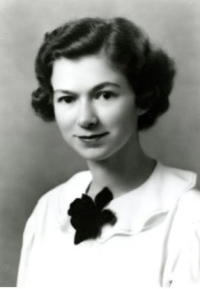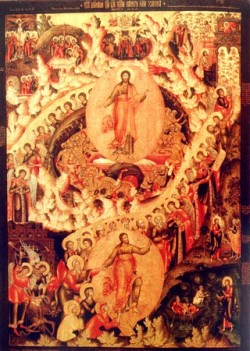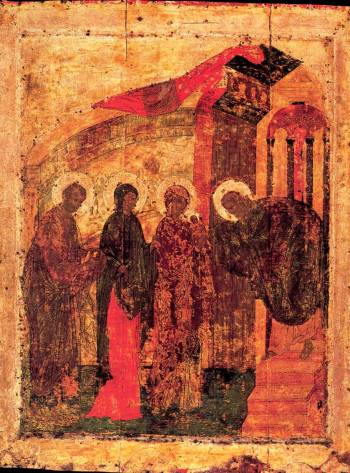
Fallen Leaves wishes its readers, whoever they may be, a merry Christmas according to the Julian calendar. Continue reading

Fallen Leaves wishes its readers, whoever they may be, a merry Christmas according to the Julian calendar. Continue reading
 At the dawn of misty youth.
At the dawn of misty youth.
Earlier this year, Beverly Cleary died, at the age of 104. This inconceivable lifespan roughly corresponds with that of American culture itself, a small but important part of which Cleary embodies. Continue reading

(Conclusion. Continued from part 1.)
Dick felt insecure about being a writer of genre fiction, however successful. In an introduction to a collection of his short stories (published in 1980), he advised readers to “bear in mind that most were written when SF was so looked down upon that it virtually was not there, in the eyes of all America. This was not funny, the derision felt toward SF writers. It made our lives wretched…really cruel abuse was inflicted on us.” The abuse was largely self-inflicted. When meeting new people in the late 1950s, especially if they had real or imagined literary connections, Dick would deliberately downplay his science fiction writing, instead emphasizing his attempts at “mainstream” novels with more conventional realistic plots, which very few people ever read. Even in 1981, he felt that his failure in this area was “the tragedy…of my creative life.”
But he needn’t have worried. A Scanner Darkly was his literary masterwork, in which the line between realism and science fiction thinned out into nonexistence. In fact, the stylistic conventions of science fiction writing are deliberately used to erode that line, from the very first page. Continue reading
 “Let me tell you about my mother.”
“Let me tell you about my mother.”
I wrote earlier that every culture revolves around a certain central idea, which is best expressed in a single word, thus allowing one to see that culture in sharp focus. I gave several examples, with the notable omission of American culture. Maybe now we can fill in this missing piece. The theme of American culture is destruction. Continue reading

(Conclusion. Continued from part 3.)
Nabokov gave dozens of interviews and expressed hundreds of opinions, even when they were not asked for (in his translations, for example). For the most part, this material is just as fictional as his novels. Continue reading

1884 grammar textbook quoted in the epigraph (11)
Nabokov’s foreword to the English edition (9)
(Continued from part 2.)
Nabokov despised clichés, but his life easily fits them. The Gift, his penultimate novel in Russian (the last being Other Shores), is proof that money does not buy happiness. It was written in obscurity, in Berlin, when Nabokov roomed in boarding-houses and made a living as an English tutor. The same drab life is shared by the protagonist of The Gift, and yet he is remarkably free from it. His inner world offers him an escape. In Pale Fire, a quarter-century later, it will lead only to a more restrictive prison. Continue reading
 Icon of the Resurrection.
Icon of the Resurrection.
Fallen Leaves wishes its readers, whoever they may be, a happy Orthodox Easter. Continue reading

Insider, June 2020
(Continued from part 1.)
Let’s not waste time talking about the beauties of Nabokov’s prose, as do many uncomfortable readers in desperate need of some angle from which Lolita might be safely appreciated. As you can see, there isn’t one. Continue reading
 Icon of the Meeting of the Lord, Andrei Rublev, 1405.
Icon of the Meeting of the Lord, Andrei Rublev, 1405.
Cathedral of the Annunciation, Moscow.
Fallen Leaves greets its readers, whoever they may be, on the day of the Meeting of the Lord. Continue reading

“infographic” from a website that helps college students cheat on homework
John Shade, a professor of English literature at a very thinly disguised Cornell University, and a poet in his spare time, composed a poem in Popean iambic pentameter titled “Pale Fire.” Unfortunately, he died before it could appear in print, but his colleague, Prof. Charles Kinbote, has eagerly volunteered to curate its publication. Pale Fire, the novel, is the published edition (or at least the corrected proofs) of “Pale Fire,” the poem — Kinbote’s foreword, followed by Shade’s poem itself, then Kinbote’s commentary, and finally an index. Continue reading